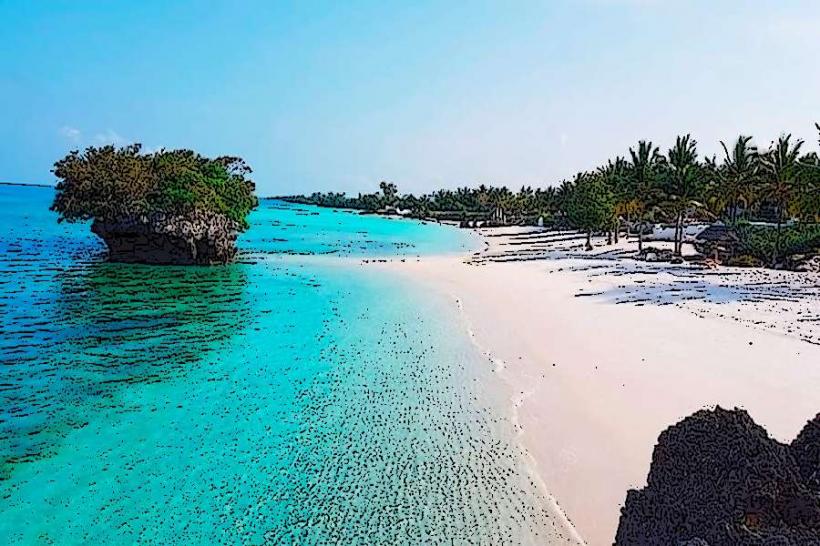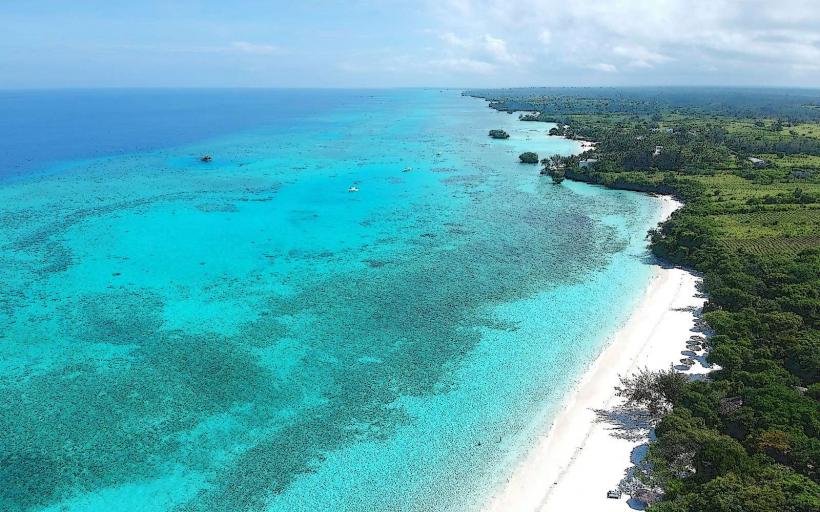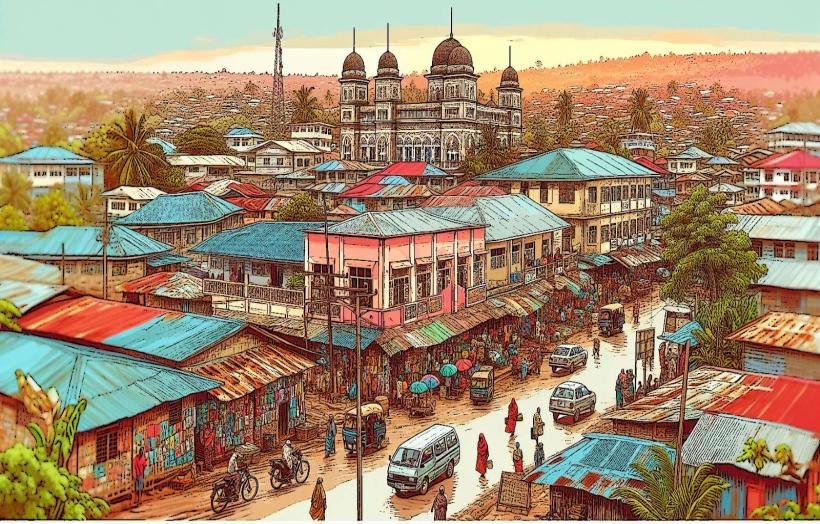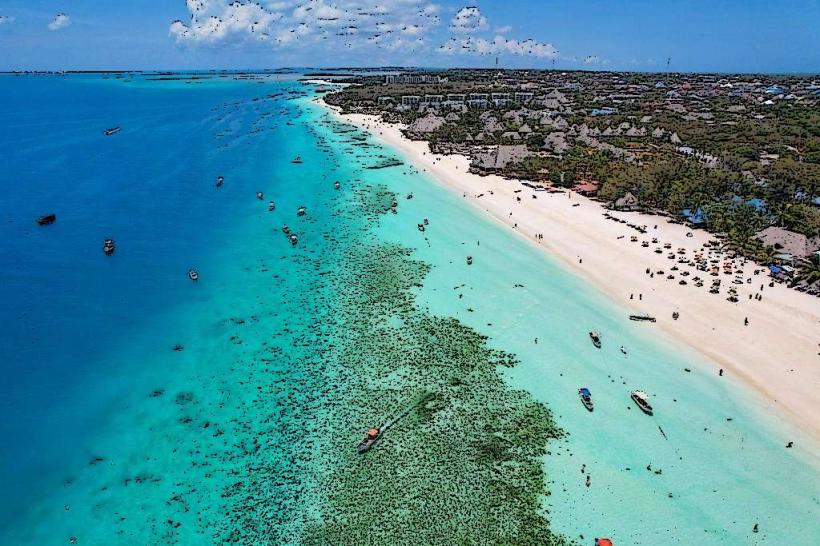Information
Landmark: Pemba Spice FarmsCity: Pemba Island
Country: Tanzania
Continent: Africa
Pemba Spice Farms, Pemba Island, Tanzania, Africa
Pemba Spice Farms
The Pemba Spice Farms are located on Pemba Island, which is part of the Zanzibar Archipelago in Tanzania. Pemba Island is known for its fertile land and its historic role in the production of spices, particularly cloves. The island's climate, with its warm temperatures and tropical rains, is ideal for growing a variety of spices, making it a significant area for spice cultivation in East Africa.
Visiting the spice farms on Pemba provides an opportunity to learn about the traditional farming methods, explore the aromatic landscapes, and discover the rich history of spice production that has shaped the island’s economy and culture.
Key Features of Pemba Spice Farms
1. Spice Cultivation on Pemba Island
- Cloves are the most famous spice grown on Pemba Island, and the island is often referred to as the "clove island" due to its large production of this spice. The clove trees on Pemba thrive in the island's volcanic soils and tropical climate.
- In addition to cloves, other spices such as cardamom, black pepper, cinnamon, nutmeg, vanilla, and turmeric are cultivated in the spice farms on Pemba Island.
- Pemba Island is one of the main sources of high-quality cloves, which are exported worldwide and contribute significantly to the island's economy.
2. Spice Farm Tours
- Visitors to Pemba’s spice farms can take guided tours where they will learn about the cultivation and processing of different spices. The tours provide an educational experience about the plants, their growth cycles, and how they are harvested.
- Spice tour guides often provide a sensory experience, allowing visitors to smell, touch, and sometimes taste the different spices in their natural form before they are processed.
- The tours typically include visits to traditional spice farms, where visitors can see how the spices are grown in a variety of organic and sustainable farming practices.
3. Clove Plantations
- Cloves are the primary spice grown on Pemba Island, and the island has a long history of clove cultivation dating back to the early days of the Arab traders who introduced the spice to the region.
- On a visit to the clove plantations, visitors can witness the process of clove harvesting, where the aromatic flower buds are handpicked and dried under the sun before they are processed for sale.
- The tour also typically explains the importance of cloves in the global spice trade and how they contribute to the local economy.
4. Other Spices
- Cardamom is another important spice that grows well in the fertile soil of Pemba. It is cultivated in smaller quantities but is a significant part of the island's spice production.
- Black pepper, cinnamon, and nutmeg are grown in the rich, tropical environment of Pemba and can be observed during the spice farm tours. These plants are often grown alongside cloves and other spices in diverse agricultural practices.
- Vanilla is also grown on some of Pemba’s spice farms. While more commonly associated with other parts of the world, the island’s tropical climate is ideal for the cultivation of this delicate and labor-intensive crop.
- Turmeric and other aromatic herbs are cultivated in the region as well, adding to the wide variety of spices grown on Pemba Island.
5. Spice Farm Experience
- A visit to the Pemba Spice Farms is an opportunity to immerse oneself in the local farming lifestyle, where visitors can interact with local farmers and understand the sustainable agricultural practices used to grow the spices.
- The experience often includes tasting opportunities, where visitors can sample spice-based teas, spices, and sometimes local dishes flavored with freshly harvested spices.
- The tour also includes walking through lush plantations, often set in scenic landscapes, where the aroma of the spices fills the air, creating a unique and memorable experience.
6. Local Economy and Sustainability
- Spice farming on Pemba Island is not only an important part of the local economy but also plays a role in sustainable agriculture. Many of the spice farms on Pemba focus on organic and eco-friendly farming practices, using minimal chemicals and promoting the conservation of the island’s environment.
- By supporting the spice farms, visitors help promote sustainable agriculture and contribute to the livelihoods of local farmers, many of whom rely on spice cultivation for their income.
7. Scenic Locations
- The spice farms on Pemba Island are often situated in scenic locations, with panoramic views of the island's lush greenery and coastline. These natural settings make the spice farm tours not just educational but also visually stunning.
- The farm tours usually involve walking through dense tropical forests and rolling hills, offering an opportunity to experience the natural beauty of Pemba Island in addition to learning about the spices.
Best Time to Visit the Spice Farms
- Dry season (June to October): The best time to visit the spice farms is during the dry season when the weather is pleasant, and the climate is ideal for outdoor activities. This is the time when most spices are in the harvesting or processing stages.
- Wet season (November to May): While the wet season sees more rainfall, it can still be a good time to visit the spice farms, especially if you're interested in seeing the growing stages of the spices. However, outdoor activities may be limited during the heavier rains.
Conclusion
A visit to the Pemba Spice Farms is an enriching experience that allows travelers to explore the island’s history, culture, and natural beauty through the lens of spice cultivation. With its lush landscapes, diverse spice varieties, and educational farm tours, it offers a unique opportunity to engage with the local community and gain insight into the traditional farming practices that have been part of Pemba Island’s identity for centuries. Whether you're interested in learning about the global spice trade, enjoying the tropical environment, or tasting fresh spices, the Pemba Spice Farms provide an unforgettable experience for nature and culture enthusiasts alike.





